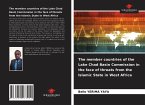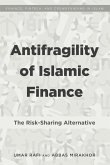Despite its considerable sway in contemporary
international politics, Islamic activism remains a
poorly understood phenomenon. To date, academics and
policy-makers have been unable to reach a consensus
in determining the most effective theoretical
framework for interpreting Islamist movements. This
study evaluates two dominant trends in the
literature, demonstrating their shortcomings, and
proposes social movement theory as an effective
alternative. Both macro theories, which treat Islam
as a monolithic entity, and grievance theories that
focus on the conditions that trigger activism fail to
answer important questions about when, where, and why
political Islamist movements emerge. Through its
focus on individual choices, social networks, and
collective action frames, social movement theory
sheds light on otherwise poorly-understood aspects of
political Islam, such as the relative success of
moderate and radical movements. An exploration of
mobilization to al-Qaeda demonstrates the potential
virtues of applying social movement theory to Islamic
activism by revealing how the transnational
organization utilizes social networks and culturally
resonant frames to attract new recruits.
international politics, Islamic activism remains a
poorly understood phenomenon. To date, academics and
policy-makers have been unable to reach a consensus
in determining the most effective theoretical
framework for interpreting Islamist movements. This
study evaluates two dominant trends in the
literature, demonstrating their shortcomings, and
proposes social movement theory as an effective
alternative. Both macro theories, which treat Islam
as a monolithic entity, and grievance theories that
focus on the conditions that trigger activism fail to
answer important questions about when, where, and why
political Islamist movements emerge. Through its
focus on individual choices, social networks, and
collective action frames, social movement theory
sheds light on otherwise poorly-understood aspects of
political Islam, such as the relative success of
moderate and radical movements. An exploration of
mobilization to al-Qaeda demonstrates the potential
virtues of applying social movement theory to Islamic
activism by revealing how the transnational
organization utilizes social networks and culturally
resonant frames to attract new recruits.








